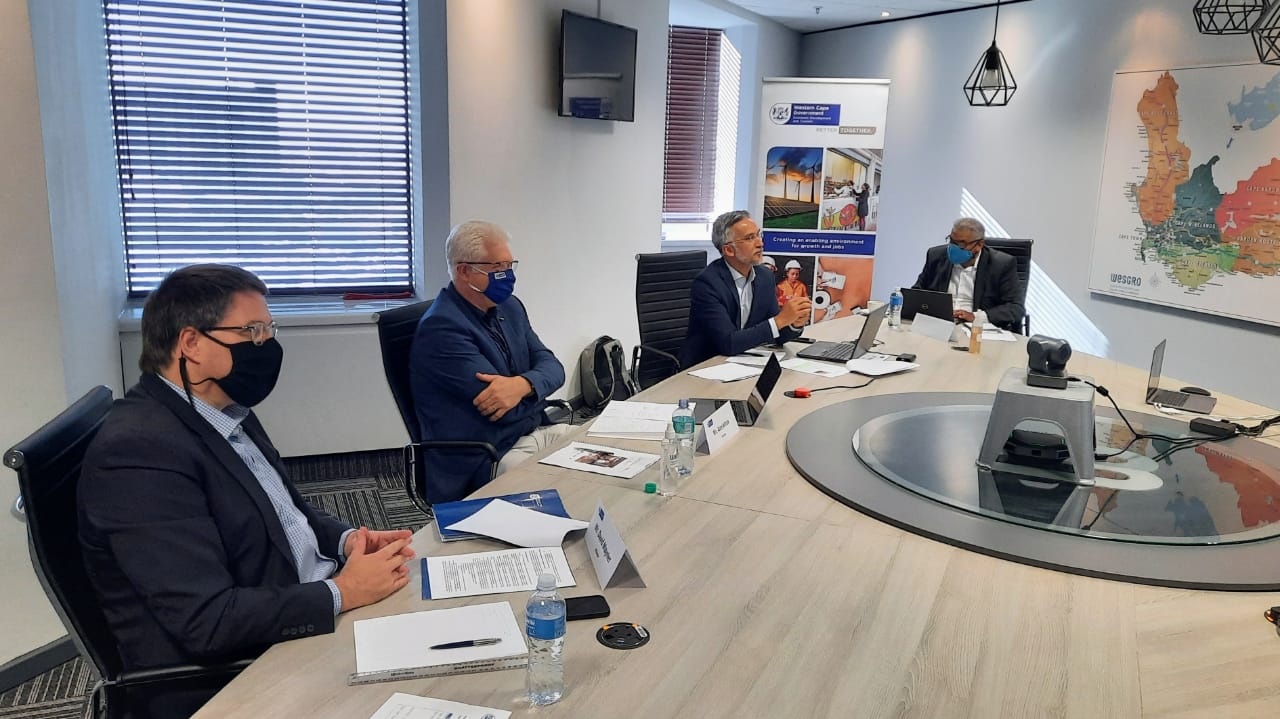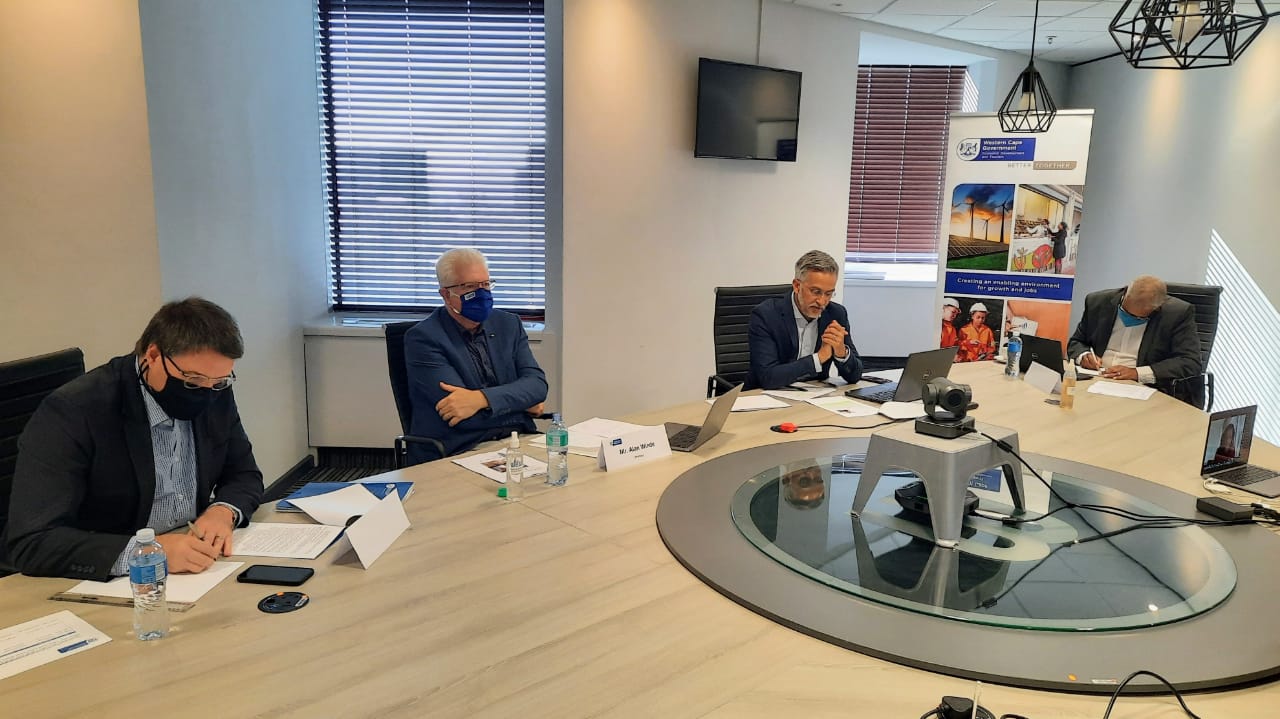
Speech
Premier's Council on Skills 2021: Opening Remarks by Minister David Maynier
I would like to welcome you all today to the Premier’s Council on Skills which will focus on the future of workplace training in a post-Covid-19 world.
The aim of today’s event is to strengthen our partnerships and share ideas about how we can innovate to develop new workplace training models that will provide more young people with the skills they need to increase their employability and their opportunities to get a job.
And so, I am pleased that we have representatives from local, provincial and national government, including our state-owned entities, joining us today.
I am pleased that we have representatives from private and public training and education institutes, and from the SETAs joining us today.
And I am pleased that we have representatives from business joining us today.
During today’s event we will be:
- Unpacking the future of workplace training
- Showcasing new and innovative models of workplace training;
- Showcasing methods of upscaling workplace training models with the help of our partners; and
- Identifying opportunities for us to collectively shape and support new workplace training models that will provide more opportunities for young people in the Western Cape.
Today is also an opportunity for us to understand how the Covid-19 pandemic has impacted workplace training, and find solutions to the challenges we face, as well as encourage more businesses to “open their doors” and offer more opportunities to young people for workplace training which is critical to the success of our Skills Development Programme in the Western Cape.
Skills Development Programme Successes
While we have the lowest unemployment rate in the country and the lowest youth unemployment rate at 32%, there are still far too many people, especially young people, who don’t have jobs or who have given up on jobs in the Western Cape.
That is why it is our top priority is to create opportunities for growth and jobs in the Western Cape.
To create those jobs, we need to attract investment to the Western Cape, and a critical drawcard for that investment is a highly skilled talent pipeline that makes us globally competitive.
To create that talent pipeline and ensure that our young people can get a job when they graduate, we are working hard, through our Skills Development programme, to create more opportunities for young people to get the right qualifications, the right skills and the right experience for jobs available now and in the future.
Our Skill Development Programme works in partnership with government, education and training institutes, civil society and business to create experiential learning and work placement opportunities for unemployed youth in the Western Cape.
This is implemented through three sub-programmes which are responsive to industry needs:
- The Work and Skills Programme;
- The Artisan Development Programme; and
- The ICT Technical Skills Programme.
Last year 4 590 beneficiaries were supported by the Work and Skills Programme, and I am pleased to announce an over 60% absorption rate of beneficiaries with the companies where they completed their workplace training.
The Work and Skills Programme also partnered with the College of Cape Town, the National Skills Fund, the City of Cape Town and the BPO industry to launch the BPO Academy which will develop bespoke industry certifications in response to changing industry needs.
Last year, through our Artisan Development Programme, 423 candidates were given experiential work opportunities at host companies providing them with valuable work experience in jobs requiring artisanal and technical skills.
And last year, through our ICT Technical Skills Programme, 80 young people at matriculant and graduate level were offered opportunities in entry-level and specialised ICT vendor courses to gain demand-led skills including Microsoft Software Development, Java, and Oracle Software Development to increase their employability in this sector.
This workplace training model will be showcased today.
The Importance of Partnerships
The success of these programmes could not have been achieved without the partnerships between all the stakeholders present here today.
Through our “partnerships for employment” model we have brought together multiple key stakeholders to ensure maximum impact for both those looking to employ skilled workers, and those looking to find fulfilling employment.
We have partnered with a host of employers across a range of sectors including Agri-processing, Security, Wholesale & Retail, Tourism, Health, ICT, Automotive, Manufacturing, Logistics, Financial and Aerospace to provide meaningful work experiences for young people.
Even across the provincial government we have seen some exciting and promising collaborations that have also positively contributed to local communities.
For example, in collaboration with the Department of Local Government and 22 municipalities across the province, over 140 unemployed graduates gained valuable work experience while contributing towards the service delivery objectives of these municipalities.
We welcome further collaborations to further leverage funding that will allow us to continue to support these programmes and even expand them so that more young people can be given an opportunity, be given a job and be given hope in the Western Cape.
Conclusion
Two weeks ago, I had the privilege of meeting some of the young people who were beneficiaries of our Work and Skills Programme which is providing work placements and training for the BPO sector.
And I got to hear directly from them about how the programme has changed their lives.
How the programme has prepared them with the necessary technical and soft skills for the workplace, and how the programme has given them hope by providing them with a full-time job which creates opportunities for them and their families in the future.
I look forward to listening to the discussions today and hearing from our key partners about how we can work together to improve workplace training models to that we can provide more young people with the skills they need to increase their employability and step into a job as soon as they are qualified.
In closing, I’d like to thank the team at the Department of Economic Development for their efforts in putting together a great programme.
I’d like to thank all our partners present today and those not here today for helping us achieve these wins to support youth employment.
And finally, I’d like to thank Premier Alan Winde who has been a champion of skills development in our province for more than a decade, and who put it so well years ago when he said: “Young people are our future and we need to give them the support they need to create a better future for themselves and make a valuable contribution to our society and economy.”
Spokesperson for the Provincial Minister of Finance and Economic Opportunities
(Responsible for the Provincial Treasury and the Department of Economic Development and Tourism)
Cell: 071 087 5150
Email: francine.higham@westerncape.gov.za



